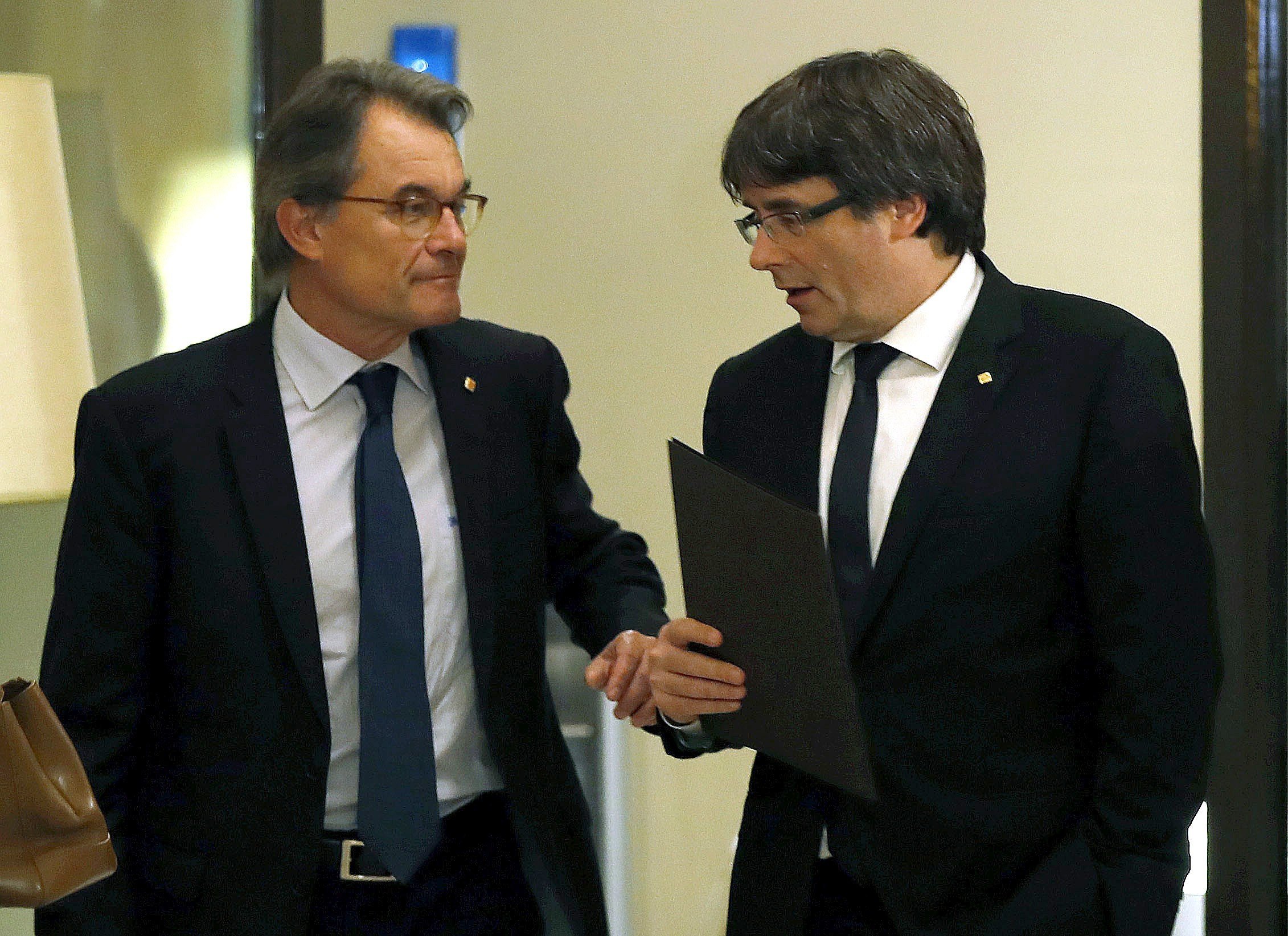Another controversial resolution related to the amnesty law. The Spanish judge leading the so-called Volhov case against Catalan pro-independence politicians, Joaquín Aguirre, has opened a new section of the case so that he can investigate the former Catalan presidents Artur Mas and Carles Puigdemont, for misuse of public funds and treason in the alleged Russian plot, in order to try to avoid having to comply with the amnesty on independence process cases and the order given to him by the Barcelona Audience to end all investigations. In the resolution, published this Friday, he accuses 13 people, including Puigdemont, Mas, the Catalan president-in-exile's lawyer, Gonzalo Boye, and the head of his office, Josep Lluís Alay, already investigated in the Volhov case, and others. The crime of treason is excluded from the amnesty law if a real foreign attack against the Spanish state were proven.
Judge Aguirre elevates the political action of former Catalan president Mas to a criminal offence and accuses him of starting the campaign for the independence of Catalonia in 2012, as well as economic campaigns like "Spain robs us". The resolution he has issued contains no specific or new criminal acts, only travel and expenses for the promotion of Catalonia abroad, which has already been judged by the Supreme Court and the Court of Accounts. Public prosecutors and defence lawyers of those investigated have 3 days to respond and file an appeal against this new investigation.
Knowing that he could be denounced for this judicial manoeuvre, judge Aguirre presents himself as a saviour and maintains: "For reasons of fairness and justice, as well as those of historical importance for the European Union, this judge was forced to think of an alternative solution to the technical-procedural objections raised by the Barcelona Audience."
The excuse of the Diputació case
In particular, the Barcelona judge has opened a new separate section focusing on alleged Russian interference in the Catalan independence movement, which derives from the Diputació case, opened in 2016 and investigating Barcelona provincial subsidies to the Convergència (CDC) party, which later led to the Volhov case. And he indicates that he will also put a reasoned argument "to the competent court" to accuse Puigdemont and Francesc de Dalmases, since they are currently Junts MPs in the Catalan Parliament and a case against them would have to be conducted in the Catalan High Court (TSJC) or the Spanish Supreme Court.
True crime TV host Carles Porta, among the defendants
The judge explains that he is aware that the Barcelona Audience ordered him to halt the investigation of the Volhov case as of August 2023, and for this reason he justifies and affirms that the investigation of the Catmon foundation has not been questioned. In fact, the Catmon section of the investigation is the only part of the Diputació case left open.
For this reason, the list of those investigated includes Víctor Terradellas, former CDC officer and president of Catmon; and Francesc de Dalmases, also as a member of the foundation; Elsa Artadi, former senior Junts politician, who testified as a member of Puigdemont's government over the reception of some Russians by the president, with talks about a cryptocurrency business, which did not reach any agreement.
Surprisingly, the judge's list also includes the journalist Carles Porta, known in Catalonia and Spain as the presenter of the popular true-crime television series Crims. Judge Aguirre has also charged a journalist for the simple fact of acting as a Russian translator for Terradellas.
"Hybrid wars" and also China
In the judge's resolution, 56 pages long, he talks of "hybrid wars" and that based on the investigation of Terradellas, he maintains that "they have obtained a large volume of data that has made it possible to verify the participation of other people that will have to be investigated" over their collaboration "in obtaining financial aid from China and the collaboration of those investigated with people of Russian origin, close to the Russian government and/or who might have links to ex-military or members of the Russian secret service."
The judge mirrors the Supreme Court's arguments
Finally, Aguirre copies the reasoning of the Supreme Court in the resolution in which it justified that there are indications to investigate Puigdemont for terrorism in the Tsunami case over his indirect authorship and for not having asked demonstrators to stop their protests. And it states: "Mas and Puigdemont had the leadership and control of the actions taken by their management cadres. They had the ability to suspend, interrupt or modify the activities aimed at contacting actors with Russian influence, whose interests were contrary to the Spanish state they represented."
Aguirre concludes: "A type of mediated authorship is thus produced in which managerial elements, with great operational capacity and influence, represented by Terradellas first and Alay later, acted as instruments in the service of a stable line of work that has been continued for many years, despite the successive changes of personnel that occurred."

